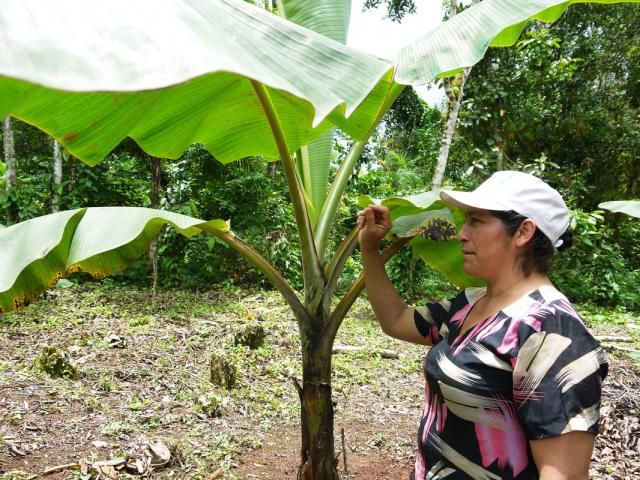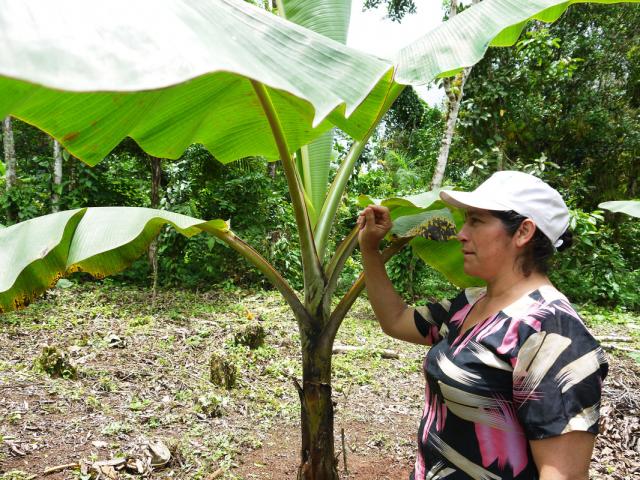Plantain Cooperative Expands Economic Opportunities

The following blog was originally posted on the CEPAD (Council of Protestant Churches of Nicaragua) website.
—————–

Last week farmers in Nueva Guinea signed an agreement with the San Antonio bank to create a new cooperative plantain business that leader Yalena Hernandez Serrano said will help producers earn an additional $2,500 per year.
Episcopal Relief & Development’s local partner CEPAD helped farmers organize and implement the new business plan. So far, 13 farmers have signed up to participate in the Allianza Productiva de Platano, also called APROPLAT, and about 80 are interested.
“We’ll do training on how to grow the plantains, the responsibilities of the project, and how to sell commercially,” said Yalena. “I love farming life, and I’m excited to help lead this project. We’ll sell in Nicaragua to start, and we hope to be able to sell internationally as well.”
CEPAD will help provide that training. A cooperative model is a great fit for rural farmers, said CEPAD program director Evenor Jerez. “The law permits them incentives when they participate in cooperatives like better prices on tools and fertilizer. ”
The San Antonio bank is a cooperative bank that CEPAD started 18 years ago to promote fair commerce. They provide loans at manageable interest rates as well as infrastructural guidance.
We hope that with this great network of support – CEPAD, Episcopal Relief and Development, and the bank – the farmers can expand their businesses and learn new skills. An additional $2,500 per year in income would mean a drastic improvement in quality of life for many farmers in Nueva Guinea. Although the project is still in the early stages, the participating farmers are committed and motivated by a hope that radiates from the bright green plantain trees growing on their farms.
———-
 Sara Delaney is a Program Officer with Episcopal Relief & Development.
Sara Delaney is a Program Officer with Episcopal Relief & Development.
Photo: Yalena Hernandez Serrano is the head of Aproplat, the new platano cooperative business in Nueva Guinea.


